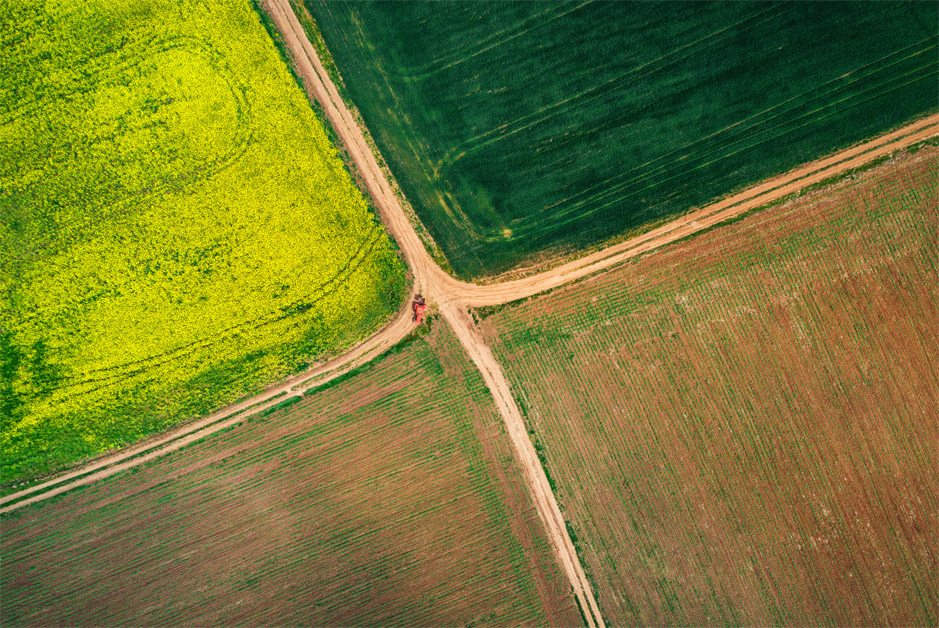By John Giles
Tired of hearing about COVID-19 and Brexit? Actually, I’m not. I am, however, concerned over the second wave of COVID infections and lockdowns, of course. I am also worried (personally) that we might reach a hard Brexit. This is something of a pivotal moment in UK social, political and economic history.
Every day, businesses are having to overcome new challenges and obstacles, as they battle an uncertain and unclear market. This isn’t just restricted to those in the UK. Agri-food companies everywhere are trying to plan their way forward, as they attempt to prepare for a post COVID world. European countries (and some others, not least the US) are also keenly interested in the outcome of Brexit and the lessons that can be learnt from the last three and a half years.
The more we look at things and the further we progress with both the impact of COVID, and international trade talks, it is becoming easier to decipher the challenges and opportunities. This is essential for businesses across the globe. Whether you’re in the US, Peru, Saudi Arabia, Ireland, Chile, Japan, across the EU, and of course, here in the UK, insight and forward-planning is part of the route to future success.
So, based on our experience over the last few months, what do we need to do going forward?
Regarding Brexit, the question on everyone’s lips is how close to a Hard/No Deal are we? Both sides are still seemingly jockeying for position as to what sort of agreement will be finally reached. We, therefore, still cannot rule out the potential of a No Deal. This would see additional tariffs on imports of EU agricultural and food products, as well as potential problems with non-tariff barriers, logistics and labour in the future.
It could, in some cases, be an opportunity to replace imports of course, but to do this still requires access to land, labour and finance – and time to do it. As an example, it can take 3-4 years to see a new apple orchard reach its commercial potential. Customers and UK consumers may often like the idea of more British food to buy. Yet, the reality is that they like it most, when it’s at no extra cost to them. Despite any tariff advantage we might gain, the UK is still essentially a high cost producer of most foods.
We are certain about one thing though: “shocks” to the supply chain are accelerating what’s already happening in the industry. The well organised and structured companies tend to get through these difficult, unpredictable times, while some struggle to navigate the obstacles in their path.
Supply chains will be stress tested by major customers to become more sustainable and resilient than ever before. The Big Ticket issues that people were talking about in mid March 2020 haven’t gone away – the new Agricultural Bill, the National Food Strategy, the development of low carbon supply chains, removal of plastics… the list goes on. Businesses need to see these drivers for change as opportunities to evolve and “do better”.
This starts with a new level of understanding of both customers and consumers. Changes are happening quickly, and in some cases, they may be permanent. The real impact of COVID – 19 is still to be felt over the next 3 – 6 months, as we see structural changes to the economy begin to hit hard.
Is exporting the key to success?
With regards to the development of UK exports, as an example, in the fresh produce sector, our general view is to ‘never say never’. We must remember, however, that fruit and vegetable exports aren’t really in our DNA, and when we have exported in the past, it has mainly been to the EU. As a result, the future question of what sort of market access we have with Europe comes back into play. Exports are hard work. Factors such as volatile exchange rates, the development of strong customer relationships and new levels of market knowledge are all important.
Having good market access is one thing, building a market presence is another thing altogether. In the last few weeks, the UK has developed a free trade deal with Japan. Does this mean that UK agri-food companies will suddenly see huge opportunity there? For those already active in the Japanese market, this is clearly great news.
It is an encouraging start to life post Brexit, but deals with the US and Oceania might prove to be a lot more difficult to conclude
For new market entrants, there is a need to learn a lot about the market structure, market regulation and the role of non-tariff barriers. Who are the key players? What is the business culture? What are the key consumer trends, routes to market, payment terms? And a whole lot more. To be good at exporting, you need to be a real expert on the market in question. ‘Getting it right’ in international markets can be the making of some, but selecting the right market at the right time is still a challenge.
Where the UK might do well is in the area of agri-tech. This is a global market in its nature and reported to be worth some US$ 400 billion. It covers the entire supply chain, with huge potential demand for solutions to complex problems, such as supply chain resilience, water, climate change, the environment, labour and the opportunities bought about by the development of a digital driven economy. UK supermarkets are world class and have driven supply chain excellence – as a result, UK commercial, R&D and academic expertise is valued around the world.
Farming and food in the future
There is a heady mix of influences creating change and pointing to a very different looking sort of UK and international agri-food sector in the future. (I’ve only just scratched the surface.) Will some thrive in this new environment and take advantage of opportunities? Yes. Will some struggle? Potentially, quite a few. Will we need to be open to new ways of farming and food production? Absolutely.
While we can’t say exactly what the new political, economic and social climate will look like for the UK over the next few years, there are a number of important pointers beginning to show us the way forward. What we can be sure of is that agri-food businesses, regardless of where they are in the world, need to be at the very top of their game in order to stand out.






